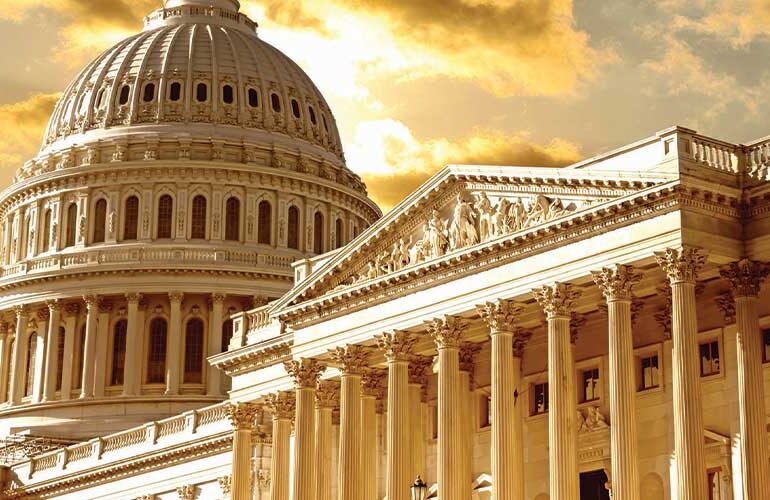
To Restore the Constitution, Shut Down Most of the Government — Permanently
BY R. Cort Kirkwood
Joseph Sobran, the late columnist and constitutional scholar, used to say that “anything called a program,” meaning most of what the federal government does, is unconstitutional. The bazillion-dollar “continuing resolution” to fund the government, which was larded with unconstitutional pork, illustrates this point. Congress passed a so-called clean bill, yet the original resolution’s failure nearly shut down the government, which would have been a baleful turn of events. Or so we are told every time those bad conservatives on Capitol Hill refuse to approve a bill loaded with more waste — this one included funding for a “gay senior home” — than Staten Island’s Fresh Kills Landfill. The point is, most of the government should be shut down.
What the shutdown hysterics fear most would have meant nothing to the average American even as late as the early 20th century. Until then, a mailman was about the only federal agent with whom Americans had contact. Americans paid zero federal income tax. But at least in 1913, federal lawmakers still thought enough of their nation’s primordial law to propose and solicit the states to ratify the 16th Amendment, which permitted the federal government to levy the tax.
The legislators who conceived that tax didn’t likely anticipate what mischief lay ahead, once politicians learned they could confiscate tens of millions, then hundreds of millions, then billions and hundreds of billions of dollars to spend as they wish. The ensuing cash bonanza enabled them to create afterward one unconstitutional “program” after another: education, welfare, Medicaid, etc. The unconstitutional Social Security and Medicare programs are subsidized by their own unconstitutional taxes.
Recall what then-House Speaker Nancy Pelosi replied when a reporter asked what codicil of the Constitution permitted the government to force Americans to buy health insurance via ObamaCare: “Are you serious?” Even as late as the 1950s, we must have been. As Sobran noted, Congress called interstate highways a defense project so they would survive a constitutional challenge. How quaint we were before Madame Pelosi showed us what real modern government was all about.
Except that the question the reporter asked was entirely correct.
“The Constitution does two things,” Sobran wrote decades ago: “First, it delegates certain enumerated powers to the federal government. Second, it separates those powers among the three branches…. Consider this. We have recently had a big national debate over national health care. Advocates and opponents argued long and loud over whether it could work, what was fair, how to pay for it, and so forth. But almost nobody raised the basic issue: Where does the federal government get the power to legislate in this area? The answer is: Nowhere. The Constitution lists 18 specific legislative powers of Congress, and not a one of them covers national health care.”
That is true for most of what the federal government does, but now, such is its scope and power — such is the average American’s dependence on its largesse or myriad activities — that millions fear a government shutdown, even for 30 days, while an American of the recent past wouldn’t even have known it. If he had, he wouldn’t have cared.
The vote for Ross Perot in 1992, Sobran observed, showed that “discontent with the ruling system … is deep and widespread among several classes of people: Christians, conservatives, gun owners, taxpayers, and simple believers in honest government all have their reasons.”
The election on November 5, 2024 showed the same thing, except that the “discontent” is deeper. It borders on outright hostility. Consider: In Donald Trump Americans elected a former president who has been the target of ruthless, unending propaganda and a lawfare campaign to jail him, not to mention two suspiciously timed and carried-out assassination attempts.
Sobran often joked that the “Constitution poses no threat to our form of government.” But of course it does. Which is why he concluded that we needn’t “invent a new system of government,” but instead must “restore the one described in the Constitution.”
And that, of course, would mean shutting down most of the federal government — permanently.
Reprinted from The New American